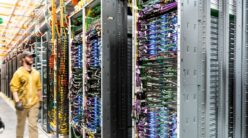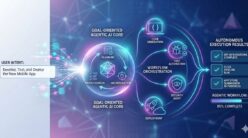The rise of artificial intelligence (AI) is not just a passing trend—it’s reshaping industries and redefining how business is conducted globally. From automating mundane tasks to offering deeper insights through data analysis, AI is revolutionizing workplaces in ways never seen before. But how exactly is AI changing the business landscape, and what should companies prepare for?
Automation of Routine Tasks
One of AI’s most immediate impacts is in automating repetitive tasks. For example, customer service can be streamlined using AI-powered chatbots that handle basic inquiries 24/7. Administrative tasks such as scheduling, invoicing, and data entry are also being automated, freeing up employees to focus on more strategic activities. This increased efficiency not only reduces human error but also allows businesses to operate faster and more cost-effectively.
Enhanced Decision-Making
AI systems can process vast amounts of data far beyond human capacity. By analyzing trends, identifying patterns, and predicting outcomes, AI provides businesses with actionable insights that improve decision-making. In industries like finance, AI-driven algorithms can forecast market trends, while in retail, AI can optimize supply chains and personalize customer experiences based on predictive analytics.
Improved Productivity
By taking over routine tasks and providing advanced analytical capabilities, AI helps increase employee productivity. Companies can invest more time and energy in innovation and creativity, fostering a more dynamic work environment. With AI handling the background work, human employees are empowered to focus on tasks that require higher-level cognitive skills, such as problem-solving and critical thinking.
Personalized Customer Experiences
In today’s digital-first world, customers expect personalized experiences, and AI is a key driver in meeting these expectations. From product recommendations to tailored marketing strategies, AI algorithms analyze consumer behavior and deliver customized solutions. This not only improves customer satisfaction but also helps businesses better understand their audience and cater to their needs effectively.
Redefining Roles and Job Descriptions
AI’s integration into the workplace will inevitably lead to shifts in job roles. While some jobs may become obsolete due to automation, new roles will emerge, particularly in AI development, oversight, and strategy. There will be a growing demand for skills such as data analysis, machine learning, and AI system management, pushing employees to upskill or reskill to stay relevant in the evolving business environment.
Enhanced Security
AI is also playing a crucial role in cybersecurity by identifying potential threats and vulnerabilities in real-time. Through advanced machine learning algorithms, businesses can detect anomalies in their systems and act quickly to prevent security breaches. As cyberattacks grow more sophisticated, AI’s role in safeguarding company data becomes increasingly essential.
Ethical Considerations and Challenges
Despite its benefits, the widespread adoption of AI also raises ethical questions. Issues such as data privacy, algorithmic bias, and job displacement need to be addressed as businesses integrate AI into their operations. Companies must establish clear guidelines and ethical frameworks to ensure that AI is used responsibly.
AI is no longer a distant concept; it is actively transforming the way businesses operate. From automating tasks to offering unparalleled insights, the benefits of AI in the workplace are vast. However, to fully leverage AI’s potential, companies must also consider the ethical challenges and invest in upskilling their workforce for the future. Embracing AI will not only enhance business performance but also set the stage for more innovative and sustainable practices in the years to come.







